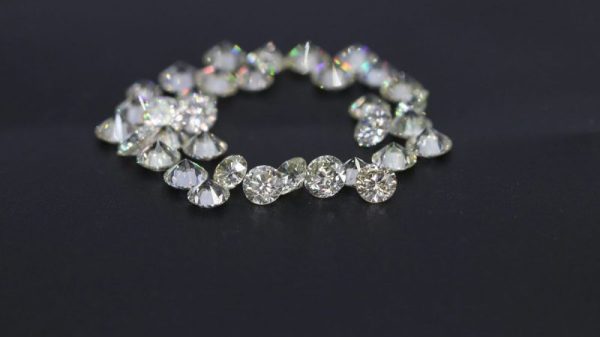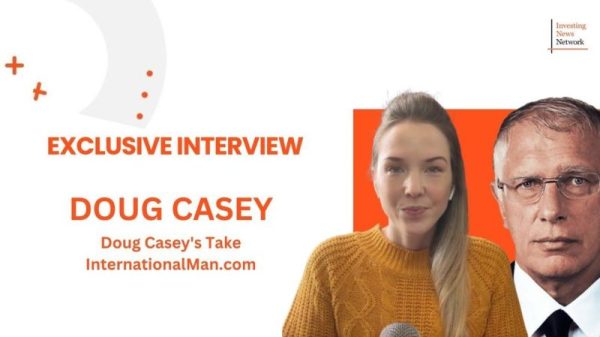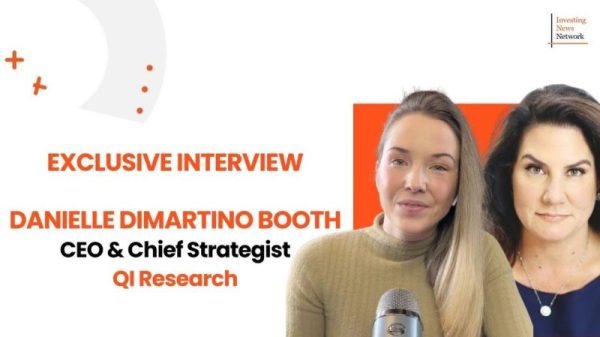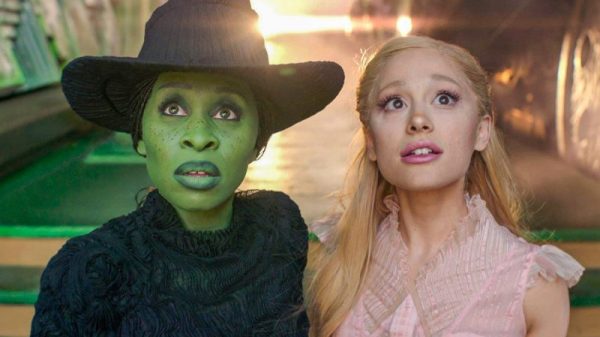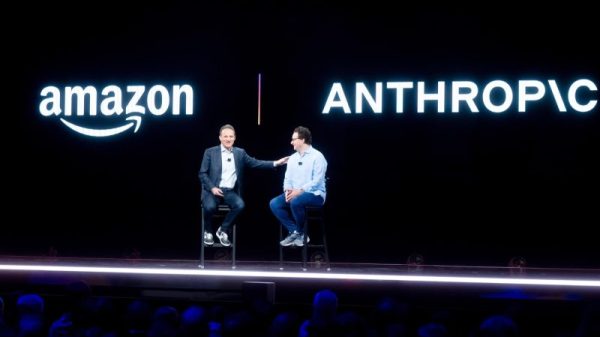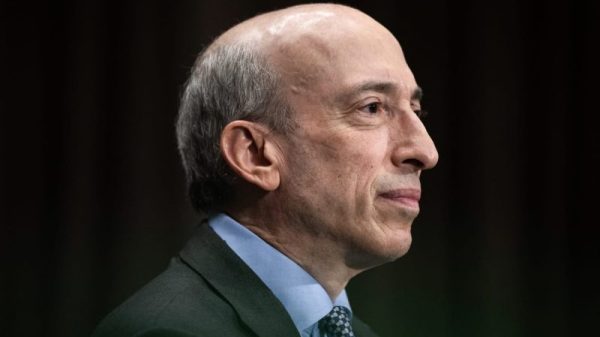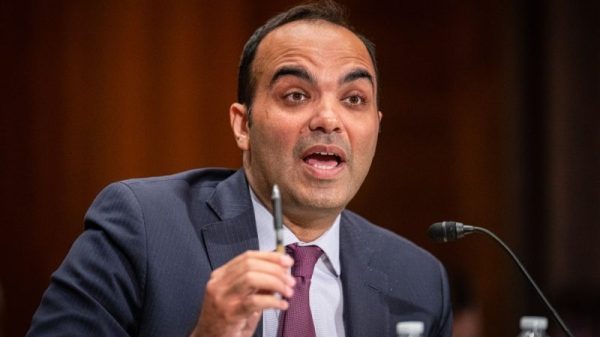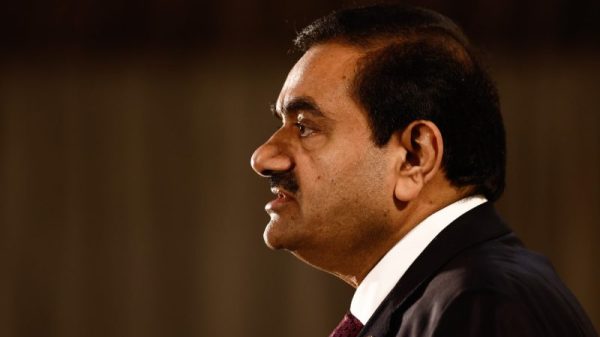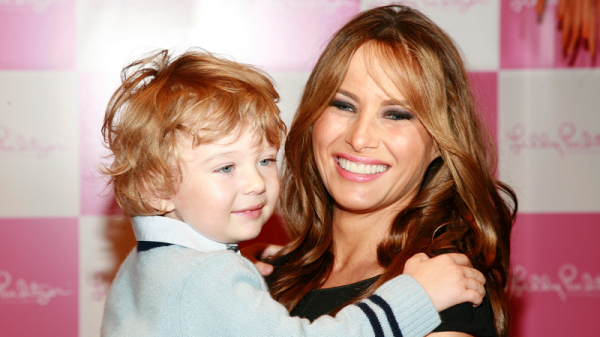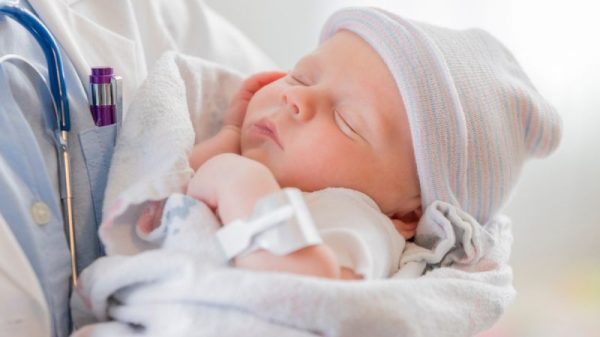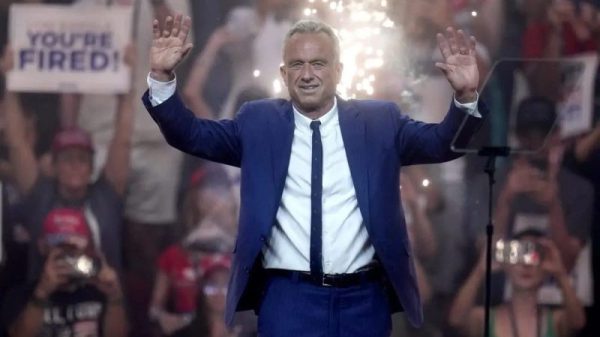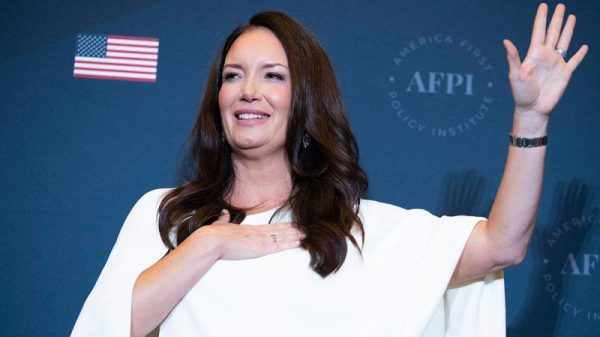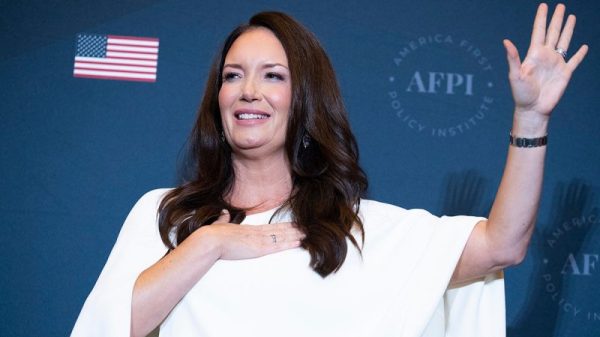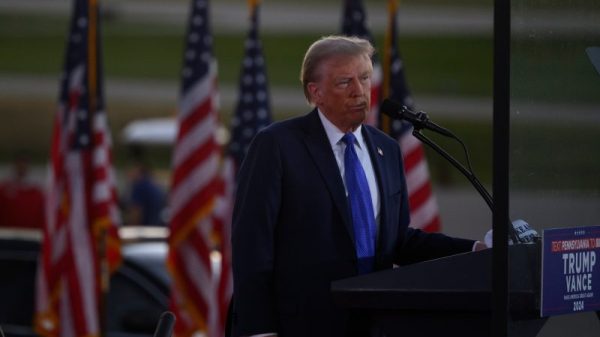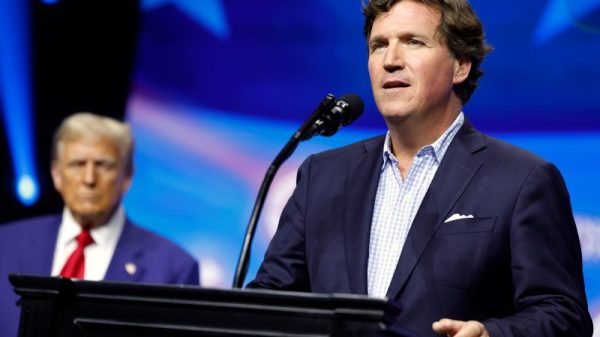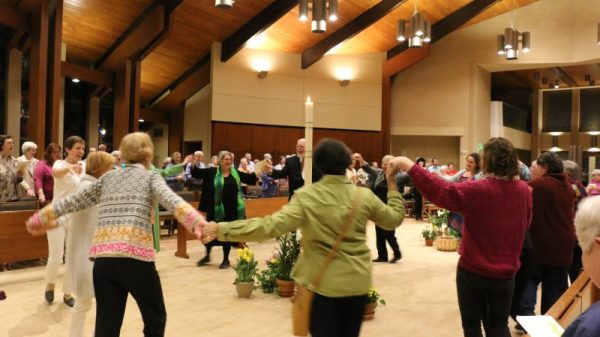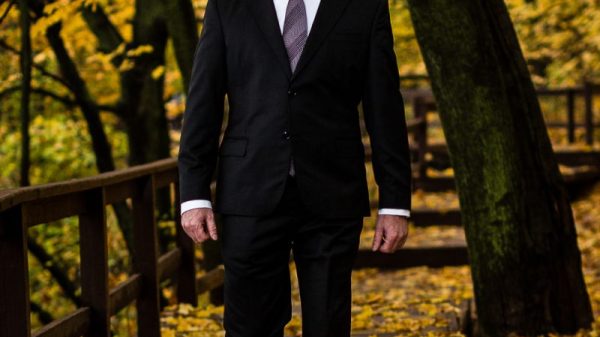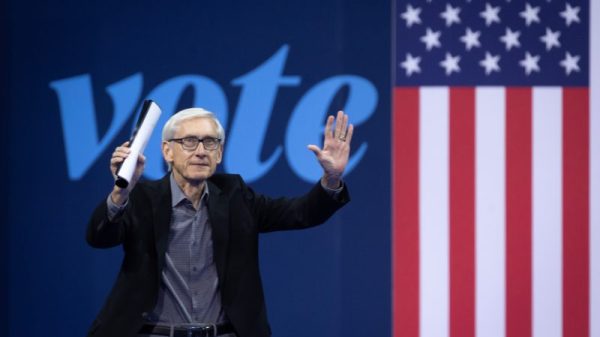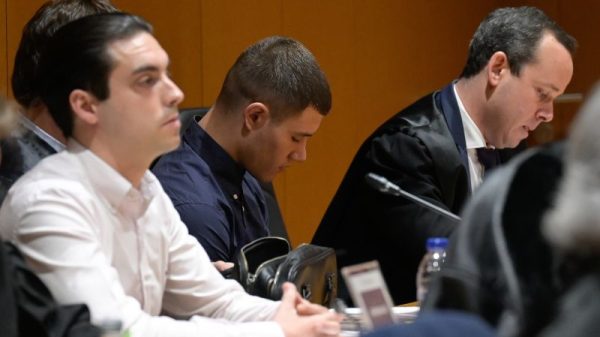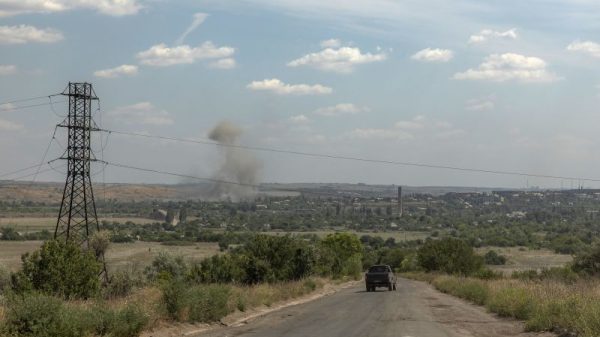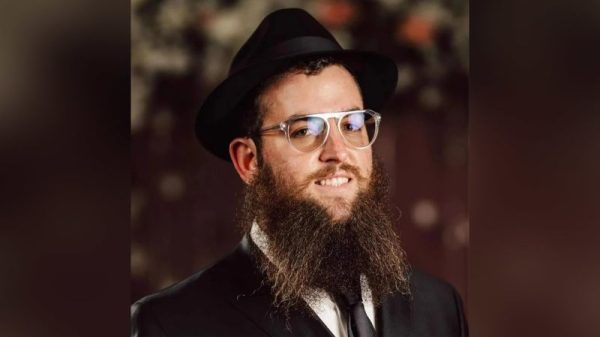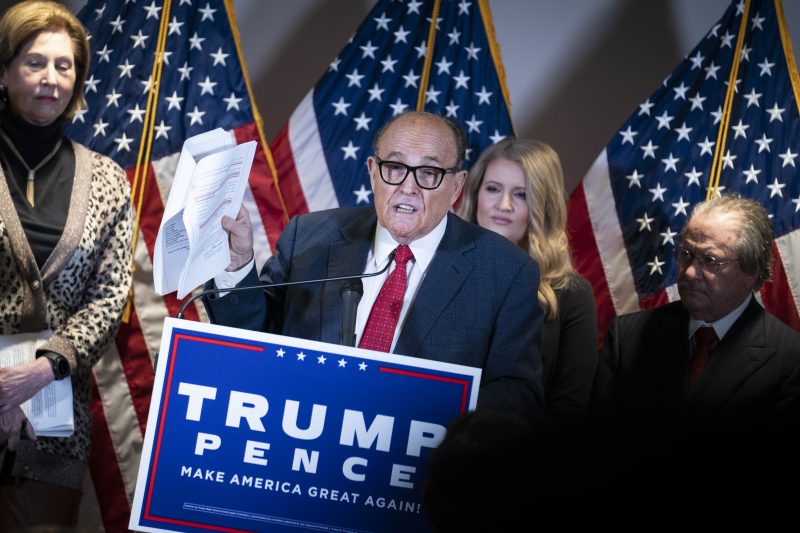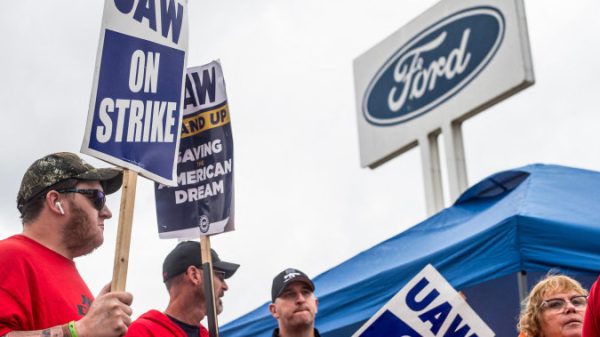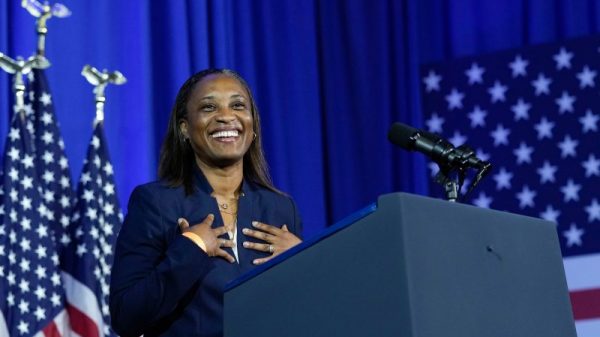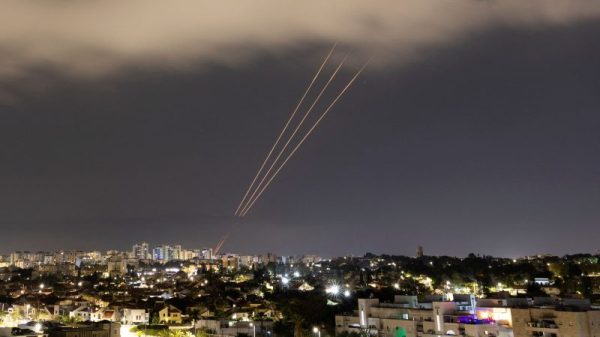Many messages called Ruby Freeman and Wandrea ArShaye “Shaye” Moss traitors. Others said they should be hanged from trees, close enough to the U.S. Capitol “for people to hear their necks snap.” And another message was just a person who repeated the n-word at least 11 times.
“We’re going to burn all those n—– clothes you had … and your daughter she’s a f—ing whore. … It’s all over the internet,” another man said in a recorded message to the two Black women, mother and daughter, a volunteer and a temporary election worker in Georgia.
On the first day of a defamation damages trial against Rudy Giuliani, attorneys for Freeman and Moss showed jurors examples of hundreds of thousands of communications that the two Georgia election workers received or were the subject of on social media after the former Trump lawyer and New York mayor baselessly accused them of tampering with 2020 presidential election vote counting at the State Farm Arena in Atlanta.
The “campaign of defamation and emotional terror” unleashed against the two women was “swift … racist, and it was vicious,” the plaintiffs’ attorneys, Michael J. Gottlieb and Von A. DuBose, said respectively in opening statements. Gottlieb told an eight-person federal jury in Washington that the plaintiffs would back their request for “tens of millions of dollars” with evidence of the damages the two women suffered after Giuliani and his co-conspirators made the names of the volunteer and the civil servant “synonymous with crimes, cheating and fraud” for millions of Americans.
Gottlieb asked jurors to send a message that “in the United States of America, behavior like Rudy Giuliani’s is not the inevitable result of politics. It is not acceptable, and it will not be tolerated.”
In the lawsuit, Freeman and Moss said they received death threats and were forced into hiding after Giuliani repeatedly claimed in the weeks after the 2020 election that misleading security video footage showed them bringing in “suitcases” full of fake votes for Joe Biden, and on at least one occasion directed Trump supporters to Freeman’s home. Giuliani’s claims were quickly debunked by election officials in Georgia, who explained that the so-called suitcases were regular ballot boxes and that nothing untoward had occurred.
Giuliani sat throughout the morning a dozen feet away from the plaintiffs at separate tables in the courtroom, where U.S. District Court Judge Beryl A. Howell instructed jurors that she had found him liable for more than a dozen defamatory statements, and that the only question is how much he should pay in damages for the violent threats and harassment Freeman and Moss received.
Ongoing investigations involving Donald Trump
1/6
End of carousel
In his opening statement, Giuliani lawyer Joseph Sibley told jurors: “There’s no question these claimants were harmed. They didn’t deserve what happened to them. But what happened to them happened because of a controversy involving a lot of people, not just Rudy Giuliani.”
He said Giuliani did not make any of the threatening phone calls or messages, and the jury must determine whether he was the proximate cause of those threats.
Sibley said the amount of damages being sought by Freeman and Moss “really should fit the crime. What the plaintiffs’ counsel are asking for here is the civil equivalent of the death penalty. What they are asking for will be the end of Mr. Giuliani. I want you to come back with an award that’s fair, appropriate and just.”
The showdown in federal court in Washington highlighted a major legal battle over false claims that became central to former president Donald Trump’s efforts to stay in power and are now at the heart of two criminal cases against him. It also reportedly threatens financial ruin for Giuliani, who rose to fame as “America’s Mayor” for his leadership of New York after the Sept. 11, 2001, terrorist attacks, but whose law license has been suspended amid a slew of pending criminal, civil and disciplinary proceedings.
Those include a state prosecution in Georgia, in part for Giuliani’s dissemination of the false claims about Freeman and Moss. He’s also considered an unindicted co-conspirator in Trump’s indictment on federal charges for alleged obstruction of the 2020 election. He and one of his lawyers are being sued by Hunter Biden for allegedly mishandling the presidential son’s laptop, and that lawyer is accusing Giuliani of not paying $1.4 million in legal bills. Giuliani also faces a suit from a former employee accusing him of wage theft and sexual harassment.
Giuliani has pleaded not guilty in the Georgia criminal cases and has denied all claims of wrongdoing in all cases.
Trump hosted a $100,000-per-person fundraiser for Giuliani in September, and spoke of his former attorney during a speech at the New York Young Republican Club’s annual gala Saturday night, saying the city had been “safe” and “prosperous” during Giuliani’s tenure as mayor of New York.
“Rudy is a warrior, he’s a brave guy, he’s a brilliant man and he’s been our friend and there’s nobody like him, really,” Trump said.
In court filings, attorneys for the Georgia election workers have hinted they might put on new evidence about the scope of the alleged conspiracy between Giuliani, Trump, and participants with his legal and campaign teams. According to state prosecutors in Georgia, three Trump supporters tried to pressure Freeman into going along with the false claims, including by showing up at her home.
Howell previously ordered Giuliani to pay the women $230,000 in legal fees and sanctions for failing to turn over relevant information. She said those failures, combined with Giuliani’s admissions, compelled her to rule without a trial that he had defamed both women, intentionally inflicted emotional distress on them as part of a civil conspiracy and owes punitive damages.
That conduct, the judge said, includes his willfully false accusations that the two workers committed election fraud by illegally excluding poll watchers, hiding illegal ballots in suitcases under tables and illegally counting ballots multiple times.
Freeman and Moss are expected to testify in the case, and the defense has signaled that Giuliani could take the witness stand in his defense.
In his opening statement, DuBose played multiple recordings of voice mails to Freeman and Moss for the jury, as well as clips of Giuliani singling out the two workers on television, on his YouTube show and in numerous tweets.
DuBose said Moss was rejected for jobs; Freeman had to leave her home and change the name of her business, he said, and she “now lives in fear for her life.”
Gottlieb told the jury that although Giuliani’s targets were election workers, they could just as well have been police officers, firefighters or teachers, after he branded “volunteers and civil servants as fraudsters and criminals.”
The jury of five women and three men includes a U.S. Forest Service worker, a Defense Intelligence Agency cost analyst and a Postal Service contractor. Other jurors include current and former employees of a technology start-up company, a law firm, and national trade and professional associations located in Washington.
The trial’s first witness, security and risk consultant Regina Scott, said Freeman’s name appeared in social media for the first of hundreds of thousands of times on Dec. 3, 2020, the first day Giuliani brought attention to the Atlanta video.
Scott said Giuliani has also mentioned Freeman and Moss 20 times since July, more than 18 months after the suit was filed, including on his nightly YouTube show “America’s Mayor Live” and other shows on which he appeared. Between May and August of this year, there were another 318,000 mentions of Freeman and Moss, about two-thirds of them negative, Scott testified.
For example, one online writer created a wanted poster for Freeman, accusing her of being “Wanted for Election Rigging.” Another wrote: “All riggers should be hanged. Ruby Freeman and [her daughter] are riggers.”
Scott testified that “the type of violent and racist and graphic material” she’d seen directed at the women was “on a level that we don’t see at all in our work … when you combine the volume with the type of content, it’s unprecedented.”
Marianne LeVine contributed to this report.

